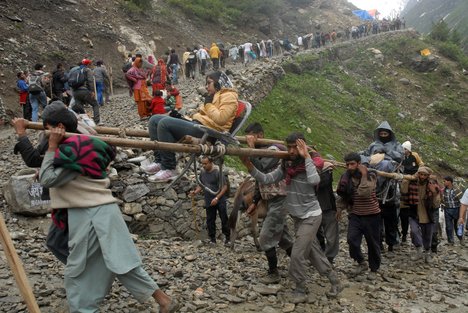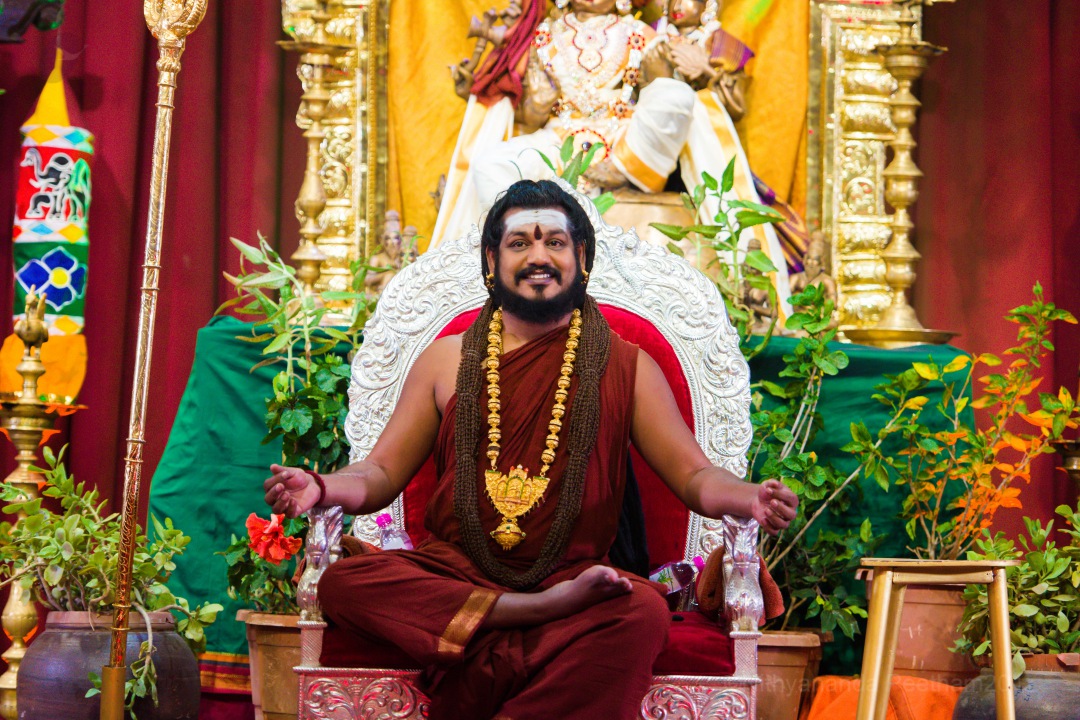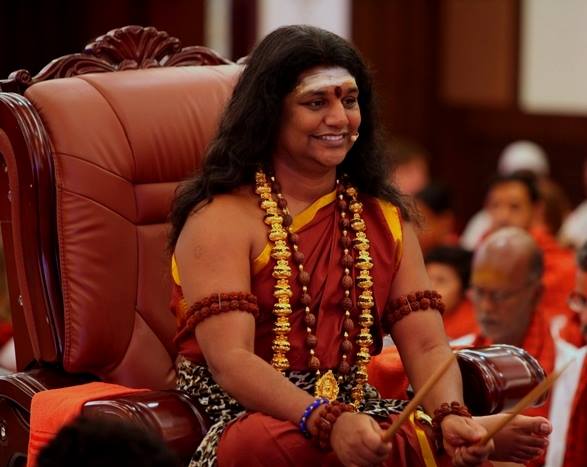Amidst The Warfield, Appears The Song Of God – Bhagavad Gītā
Oṁ pārthāya pratibodhitāṁ bhagavatā nārāyaṇena svayaṁ
vyāsena gratitāṁ purāṇa muninā madhye mahābhāratam I
advaitāmṛta varṣiṇīṁ bhagavatīṁ aṣṭādaśā’dhyāyinīṁ
amba tvām anusandadhāmi bhagavadgīte bhavadveṣiṇīm II
‘Oṁ, I meditate upon you, Bhagavad Gītā,
the affectionate Divine Mother,
showering the nectar of advaita, non-duality and destroying rebirth, incorporated into the midst of Mahābhārat of eighteen chapters by sage Vyāsa, the author of the purāṇas and imparted to Arjuna by Bhagavān Nārāyaṇa, Himself.’
~ Invocation Verse of Bhagavad Gītā
Bhagavad Gītā appears in the heart of Mahābhārat in Bhīṣma Parva, the sixth chapter of its eighteen chapters. Veda Vyāsa, the narrator, in glorifying the Gītā sings, ‘the one who drinks the water of Ganges (the sacred river for Hindus) attains liberation, what to speak of the one who drinks the nectar of Gītā? Gītā is the essential nectar of the Mahābhārat, bhāratamṛta sarvasvam as it is directly spoken by Nārāyaṇa, Bhagavān Kṛṣṇa Himself.’
The armies assembled in the vast field of Kurukṣetra, now in the state of Haryana in modern day India. All the kings and princes were related to one another, and were often on opposite sides. Facing the Kaurava army and his friends, relatives and teachers, Arjuna was overcome by remorse and guilt, and wanted to walk away from the battle out of total powerlessness unbecoming an invincible warrior among warriors.
Śrī Kṛṣṇa’s dialogue with Arjuna on the battlefield of Kurukṣetra out of His utmost concern and love for him and humanity is the content of Bhagavad Gītā. Of its seven hundred and forty-five (745) verses, Bhagavān Śrī Kṛṣṇa sings the Gītā in six hundred and twenty (620) verses responding to Arjuna’s fifty-seven (57) enquiries. Śrī Kṛṣṇa persuades Arjuna to give-up his powerlessness unfitting an Ārya—the spiritually evolved one who understands human life and urges him to raise himself again as Parantapa—the conqueror of enemy, and take up arms and vanquish his enemies.
‘They are already dead,’ says Śrī Kṛṣṇa, ‘All those who are facing you have been already killed by Me. Go ahead and do what you have to do. That is your responsibility. Do not worry about the outcome. Leave that to Me.’
Gītā is the ultimate practical teaching on the inner science of spirituality that expresses as outer victory and success in life now and after. It is not, as some scholars incorrectly claim, a promotion of violence. It is about the impermanence of the mind and body, and the need to go beyond the mind, ego and logic.
Being blind with self-doubt, king Dhṛtarāṣṭra does not participate in the war. His minister Sañjaya uses his power of clairvoyance bestowed by Veda Vyāsa to ‘see’ and relate to king Dhṛtarāṣṭra the goings on the battlefield. It is in Sañjaya’s voice that we hear Gītā, the dialogue between Śrī Kṛṣṇa and Arjuna.
All the Kaurava princes as well as all their commanders such as Bhīṣma, Droṇa and Karṇa were killed in battle. The five Pānḍava brothers survived as winners and became the rulers of the combined kingdom.
This dialogue sung between Śrī Kṛṣṇa and Arjuna is a dialogue between man and God or Nara and Nārāyaṇa as they are called in Saṃskṛit. Arjuna’s questions and doubts are those of each one of us. Nara Arjuna is the leader, the embodiment of responsibility representing the whole humanity that is burdened with the sufferings born from self-doubt, self-hatred and self-denial of its innate natural state of liberation, mokṣa. Only Nārāyaṇa as Śrī Kṛṣṇa can sport a divine smile on His face and sing the nectars of Advaita—space of infinity (non-duality) and Sāṅkhya Yoga—knowledge of completion in the midst of the waging world war.
Only Bhagavān, one possessed with infinite powers, infinite knowledge, infinite renunciation, and infinite riches, fame and beauty can declare the imperishable and eternal nature of the Self; and also give the direct experience of the Self to Arjuna in Viśvarūpa Darśan Yoga and culminate it with Mokṣa Sannyāsa Yoga—the yoga of liberation.
The answers of the Divine, Śrī Kṛṣṇa, transcend time and space. Śrī Kṛṣṇa’s message is everlasting and joyfully performed, and is as valid today as it was on that fateful battlefield over five thousand years ago. The science of Gītā is the eternal technique of living in completion; the song of Gītā is the eternal life-enriching nectar, having no expiry date, time or age!
Based on satsangs delivered by rare Living Incarnation Paramahamsa Sri Nithyananda











